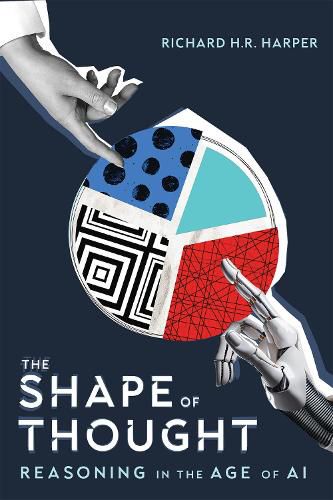Readings Newsletter
Become a Readings Member to make your shopping experience even easier.
Sign in or sign up for free!
You’re not far away from qualifying for FREE standard shipping within Australia
You’ve qualified for FREE standard shipping within Australia
The cart is loading…






Artificial intelligence (AI) consists of a dazzling set of computational tools that few fully understand. From our cars to our homes to how we socialize and work, AI is everywhere and makes life so much better. It might irritate in some instances but mostly it helps. Or it seems to.
Yet AI developers have an unusually narrow perspective on intelligence, reducing all judgments to a calculus. Machines excel at this form of intelligence, but it is not how most people define the word. While this narrowing has provided useful direction for the development of computers, Richard Harper argues, it also constrains what people are capable of. When we reach for AI to help us unwind, connect with others, or even create art, it's not analytical intelligence that we are after. The human behaviours that AI seeks to supplement are shaped as much by mood, morals, indolence, and interrelation as they are by calculation. Drawing on three decades of inquiry, Harper reveals that when we are misled about what AI cannot do, we fail to see what it can.
The Shape of Thought shows how to break free from this narrow view. By better understanding the many different things that people achieve with computers, we can improve and diversify AI to allow for richer, more beneficial human-computer interaction.
$9.00 standard shipping within Australia
FREE standard shipping within Australia for orders over $100.00
Express & International shipping calculated at checkout
Artificial intelligence (AI) consists of a dazzling set of computational tools that few fully understand. From our cars to our homes to how we socialize and work, AI is everywhere and makes life so much better. It might irritate in some instances but mostly it helps. Or it seems to.
Yet AI developers have an unusually narrow perspective on intelligence, reducing all judgments to a calculus. Machines excel at this form of intelligence, but it is not how most people define the word. While this narrowing has provided useful direction for the development of computers, Richard Harper argues, it also constrains what people are capable of. When we reach for AI to help us unwind, connect with others, or even create art, it's not analytical intelligence that we are after. The human behaviours that AI seeks to supplement are shaped as much by mood, morals, indolence, and interrelation as they are by calculation. Drawing on three decades of inquiry, Harper reveals that when we are misled about what AI cannot do, we fail to see what it can.
The Shape of Thought shows how to break free from this narrow view. By better understanding the many different things that people achieve with computers, we can improve and diversify AI to allow for richer, more beneficial human-computer interaction.